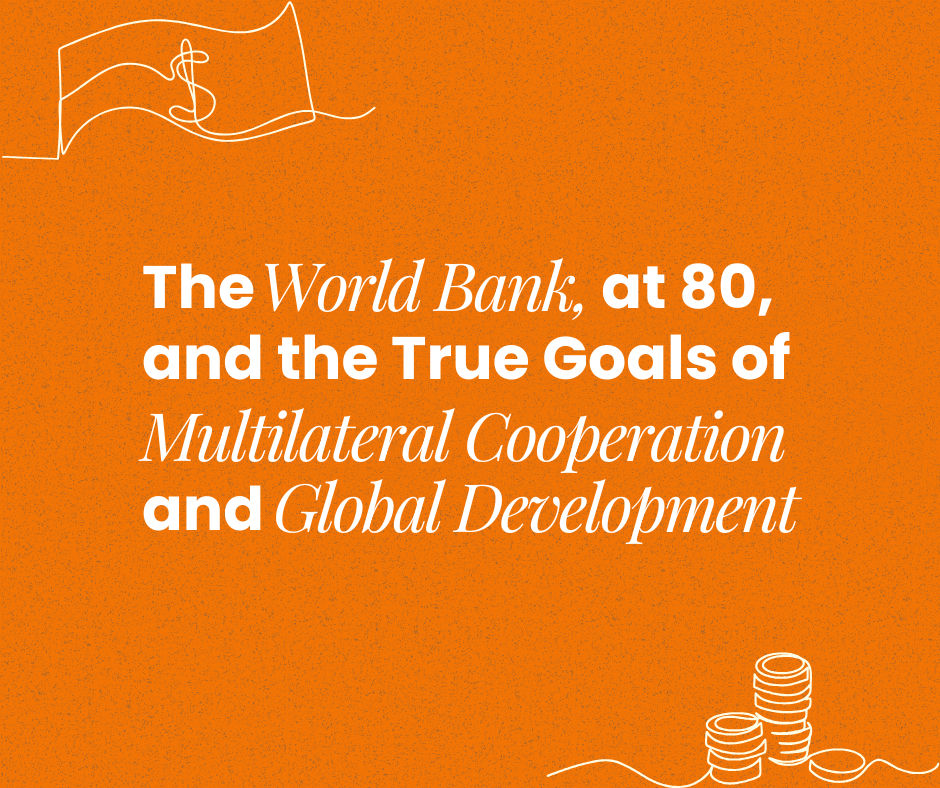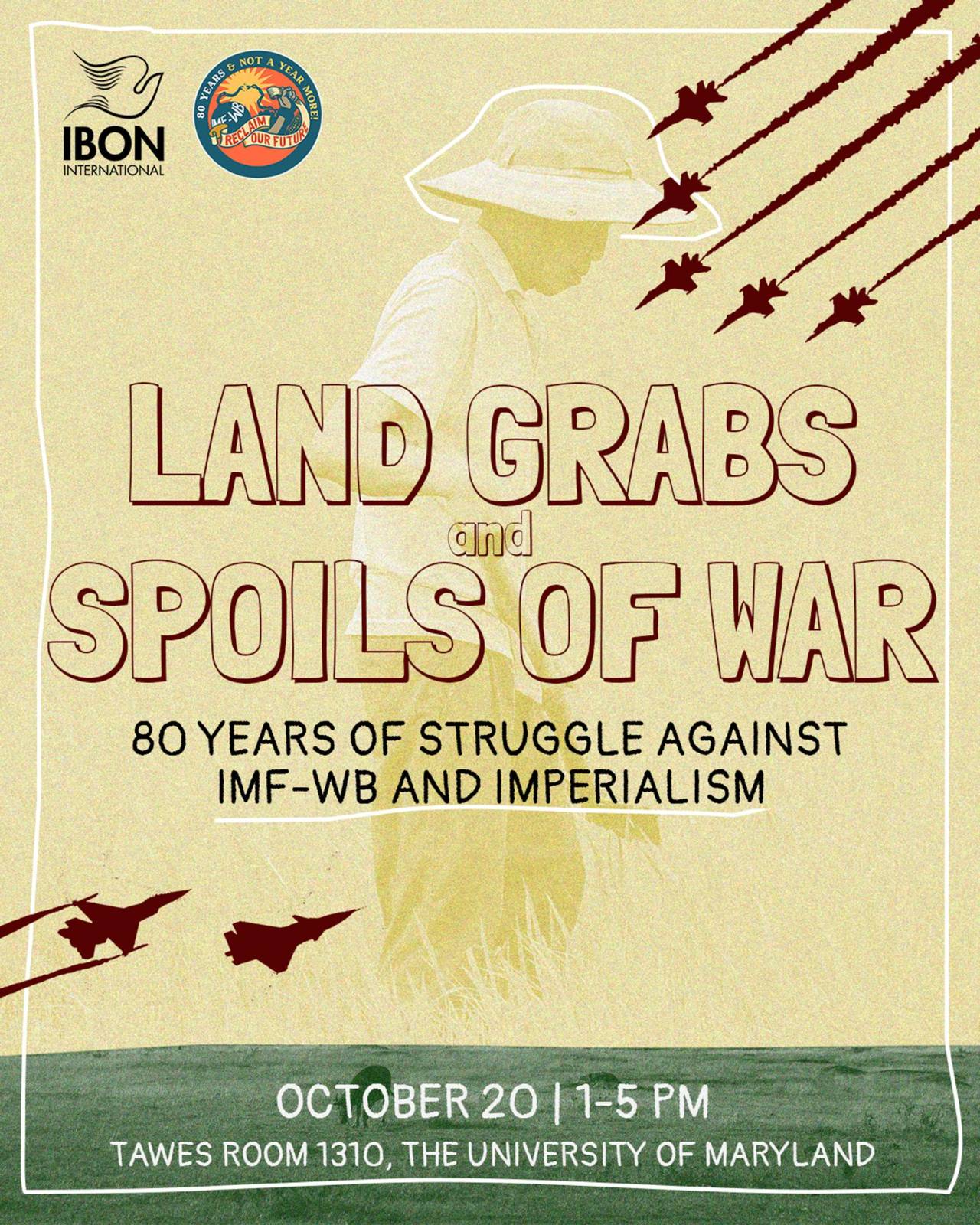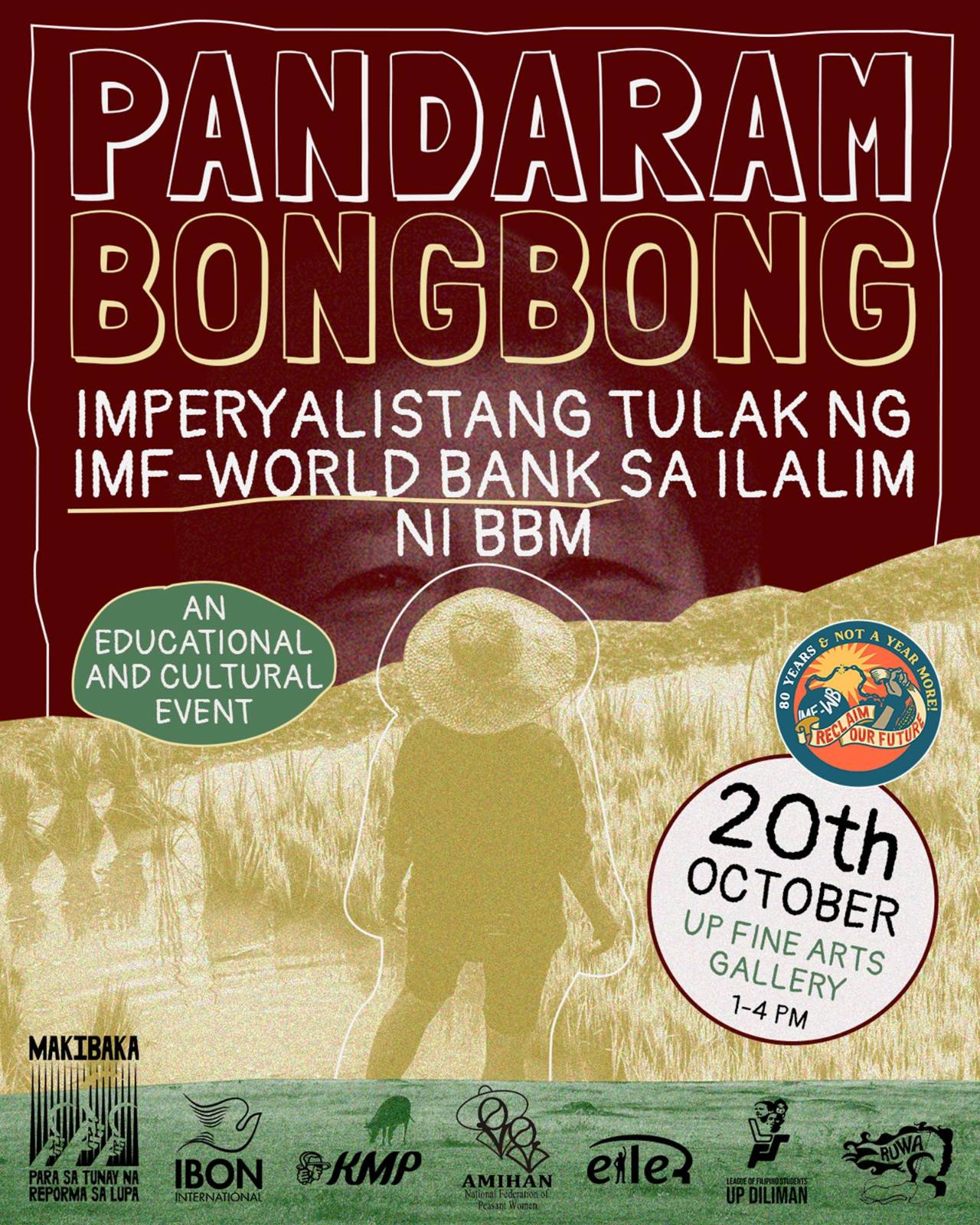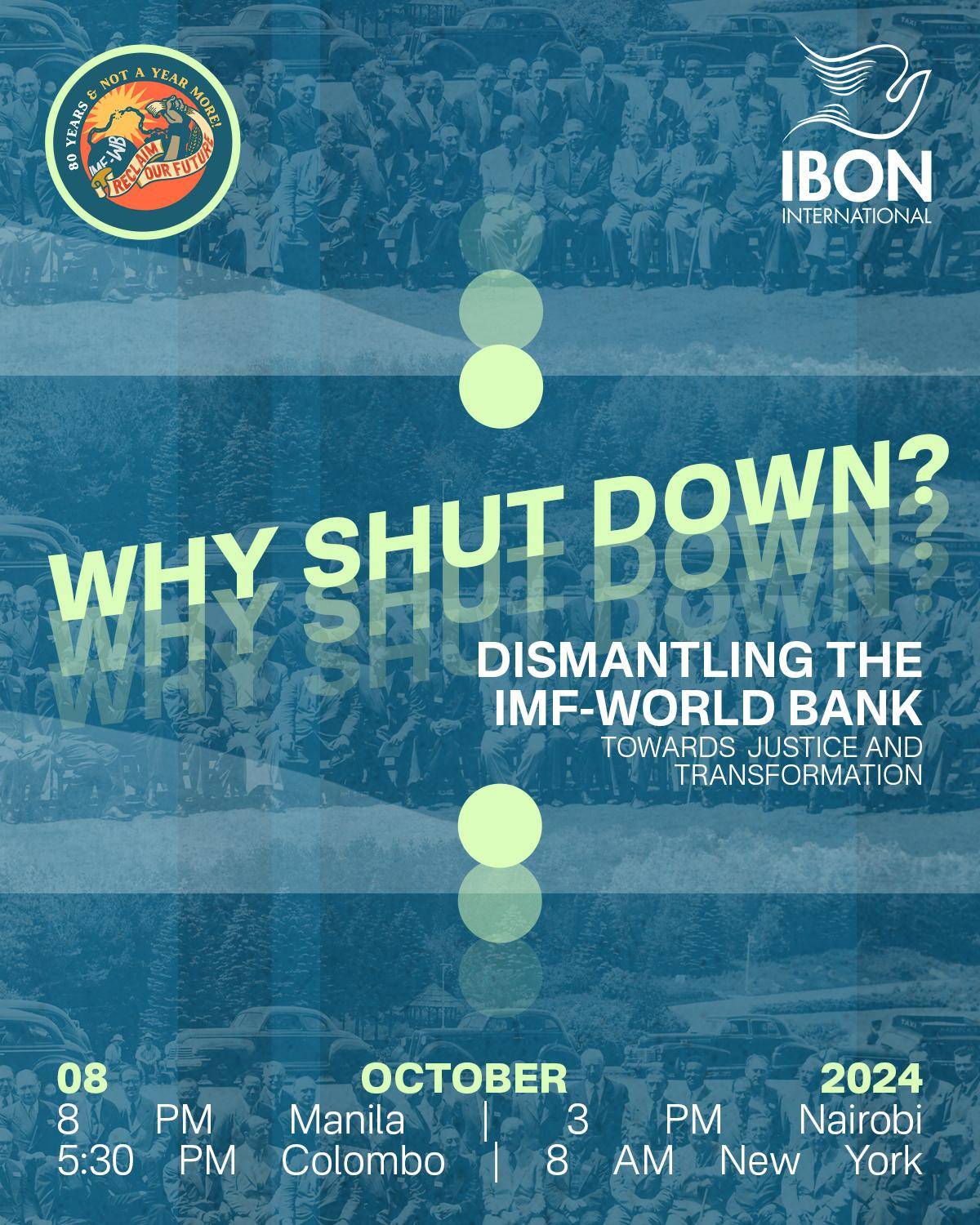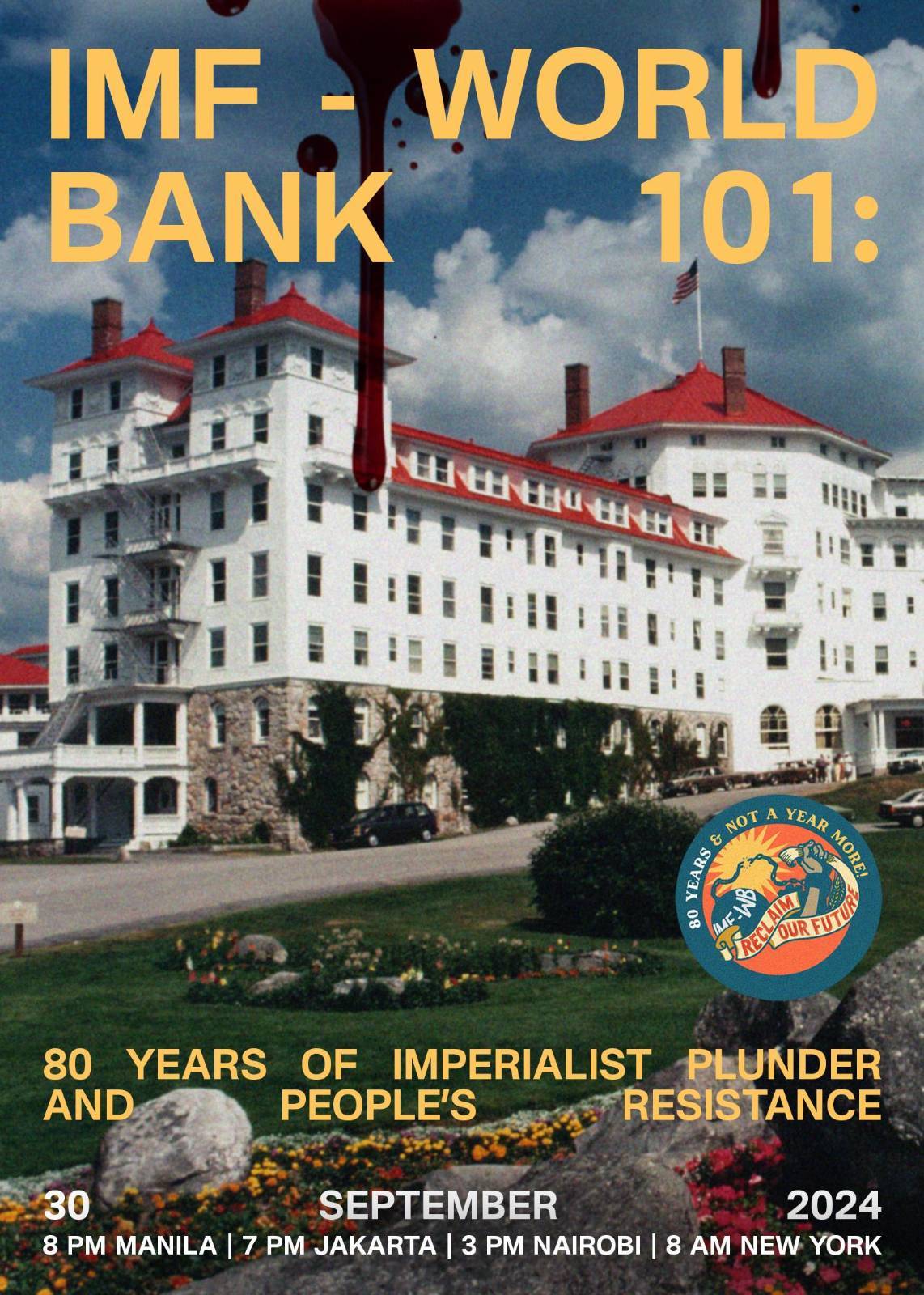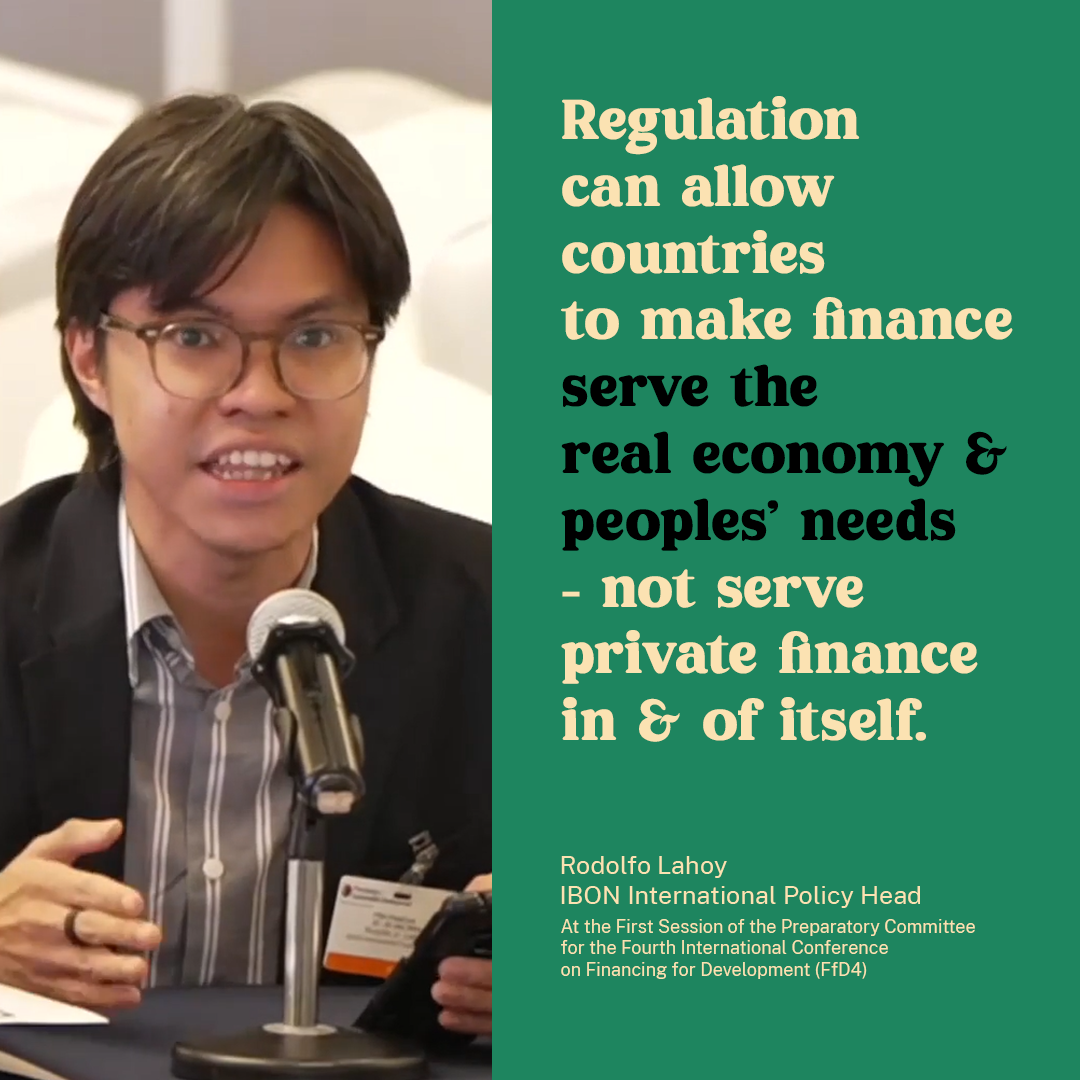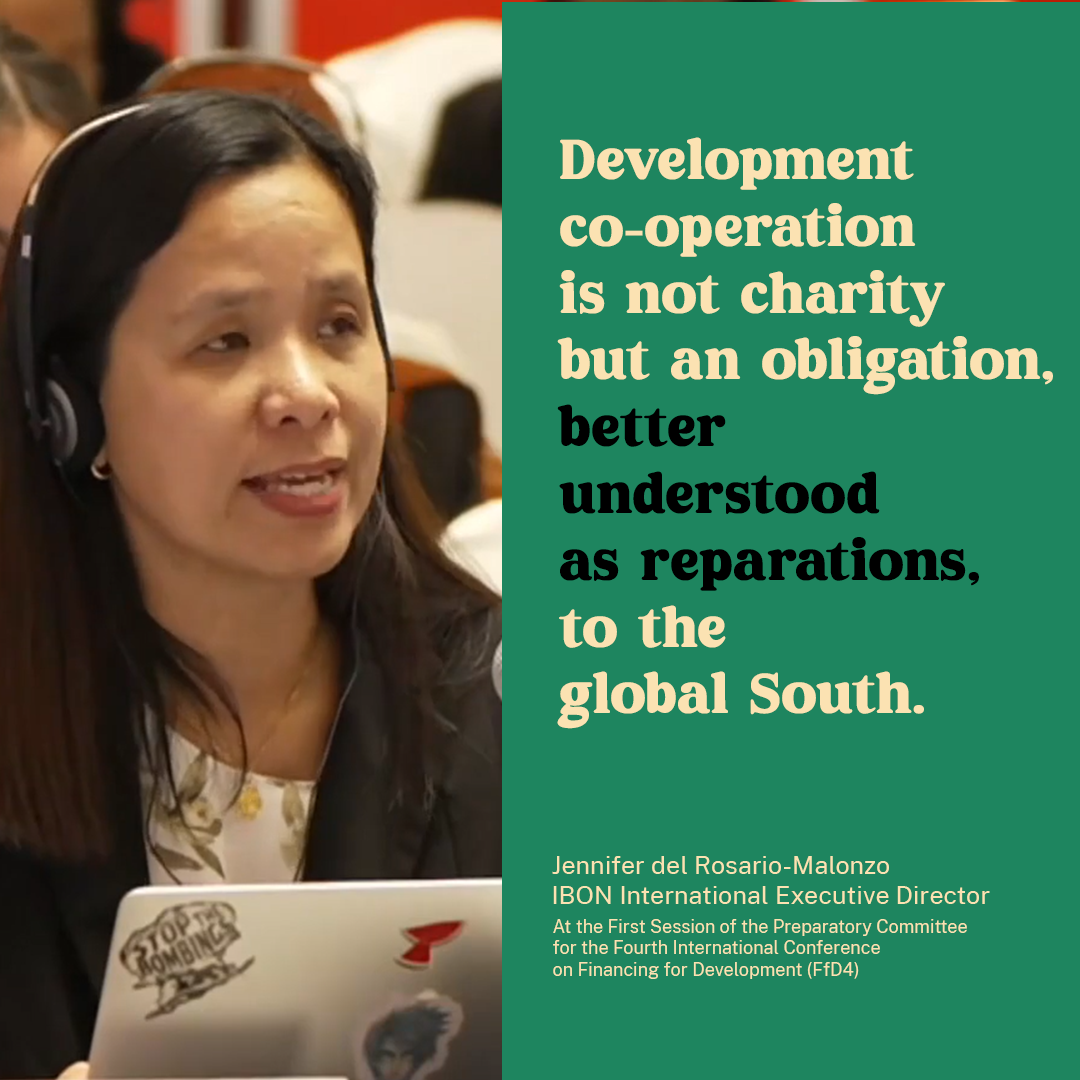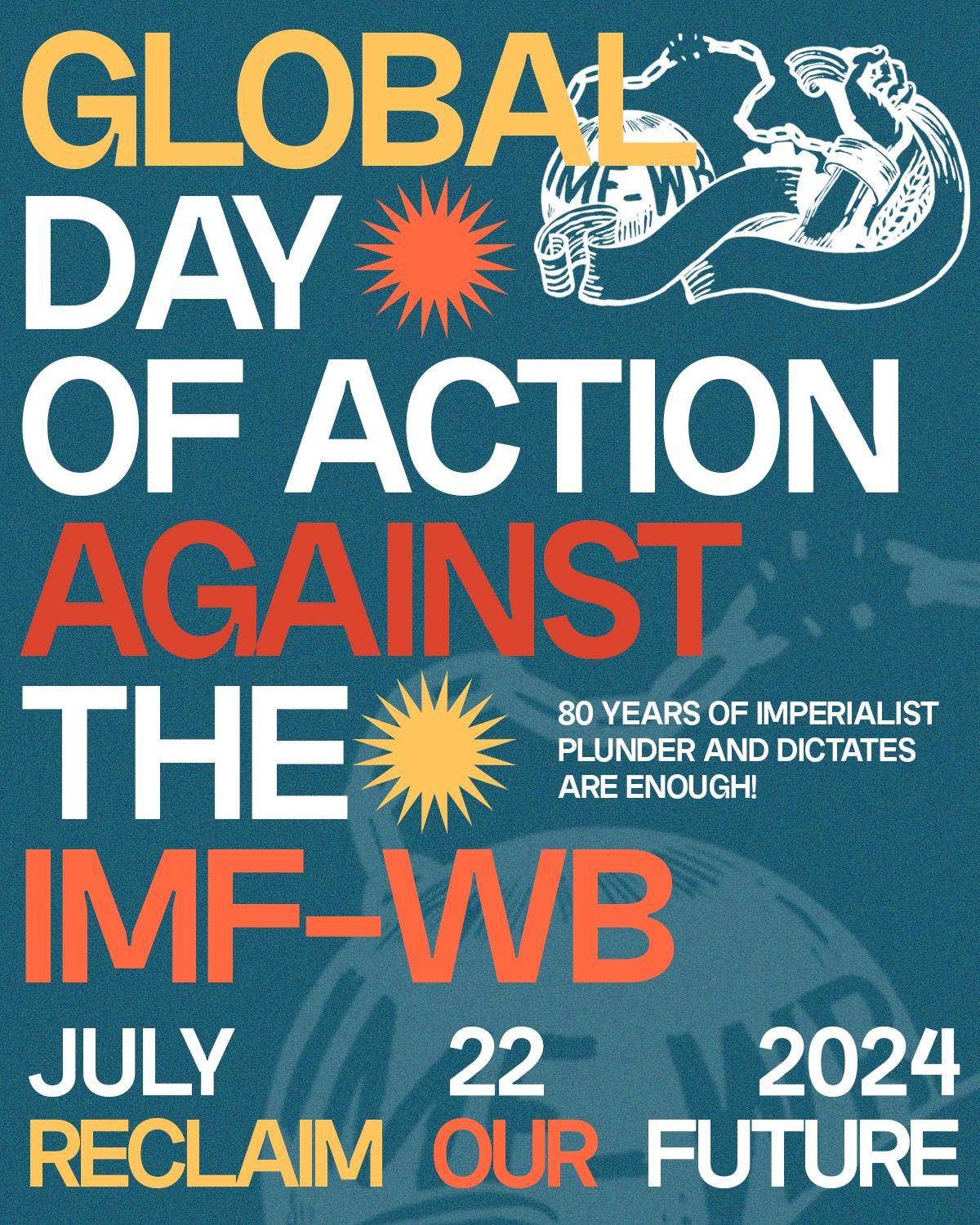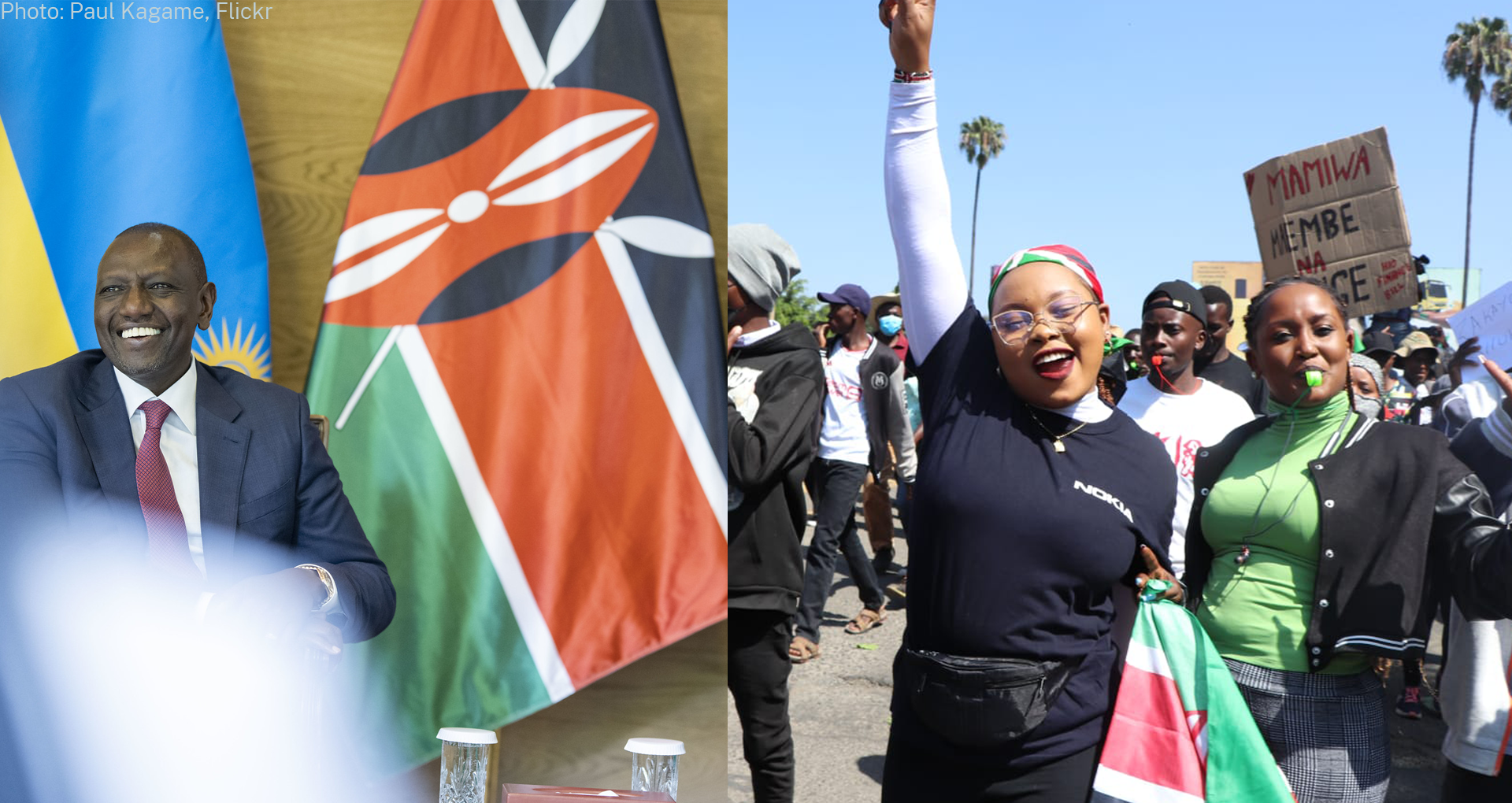Last October, the IMF and the World Bank convened in Washington, DC and talked about creating new, better versions of themselves. At COP29, both talked about their roles in climate action as institutions with an 80-year history. The World Bank updated its mandate, and the IMF has jumped on the climate agenda to prove their relevance and importance in a rapidly warming world upended by economic and political crises.
Northern countries refuse responsibility, and invest their resources to profit from the climate crisis, and in genocidal wars. The majority of the global South is debt-bound, spending more than 20% of their budgets to appease foreign creditors, and unable to protect people from climate disasters. To the burning and crashing world, the IMF prescribes more loans and austerity.
Austerity is the definitive fiscal policy prescribed by the IMF to governments experiencing debt and budget problems. It aims to resolve these issues by cutting back on public spending in social services, subsidies, and employment, privatising state enterprises, and increasing revenues by wringing taxes from wage-earners. True to its name, the policy is especially harsh on working-class people who rely on public services and depend on their wages for daily living. In a report released in October, the IMF recommends reducing government spending by 3 to 4.5 percent of GDP on average.
The IMF is even greenwashing austerity through its Resilience and Sustainability Trust. The RST is a lending instrument established in 2022 that rechannelled unused Special Drawing Rights to provide financing to low- and middle-income countries in making payments for foreign trade and debt, and addressing the climate crisis. To date, the RST has provided loans to 20 countries, 13 of which are in Africa. RST loan conditionalities prescribe the same austerity measures and neoliberal policies: cutbacks on public sector and employment, privatisation of state-owned enterprises, and liberalisation and deregulation of domestic markets and industries. “Green conditionalities” include public-private partnerships for climate-related projects, and power sector reforms to facilitate private investments.
In Morocco, RST reforms are linked with the European Union’s interests in green hydrogen. In line with the European Green Deal, the European Commission came up with a hydrogen strategy that sought to fulfil EU’s hydrogen demand by investing in infrastructure for hydrogen production in North Africa. European energy investments in Morocco, such as a solar and wind project by British company Xlinks, and a hydrogen project by French company Total Erens, are extractive and costly for the public. In 2021, 98% of around 159,602 hectares of public land in the country were allocated for green energy investments. In general, public-private partnerships also require capital investments and incentives that strain public resources in the long run. It is also noteworthy that Morocco has normalised its relations with the genocidal Israeli occupation through collaboration on green energy projects.
In a policy note, the IMF stated that attracting “green” foreign direct investment (FDI), referring to FDI in renewable energy, green hydrogen, and electric vehicles, requires implementing policies that “ensure a reliable revenue stream to investors.” The IMF’s solution to the climate crisis could be summarised as: more loans, conditionalities, and FDI onto the global South. It is using the climate crisis as a pretext to flood the global South with Northern capital surplus in the form of loans and investments in extractive projects for exponential profits. Loan conditionalities prime countries for the entry of private capital.
Global South protests vs. austerity
People around the world have been well-aware about the IMF and the World Bank’s significant role in creating today’s crises. This year, protests in the global South, from Kenya, Ghana, to Pakistan, Bangladesh, and Sri Lanka, clearly pinpointed the US-led institutions as culprits for economic woes.
In June, new tax hikes imposed by a 2021 USD 3.9 billion IMF loan sparked protests in Kenya. President William Ruto was forced to withdraw the tax hikes; but since the approval of the IMF loan in 2021, conditionalities have increased and imposed new taxes on working peoples, suspended subsidies on fuel and fertilisers, among other austerity measures.
In the same month, massive protests swept Bangladesh against an unfair job-quota system that favoured war veterans but denied opportunity to the youth, and forced the resignation of Prime Minister Sheikh Hasina in August. Prior to the escalation of protests, people in Bangladesh suffered from the depreciation of the local currency, inflation, and reduced government spending in public services. All of these could be related to conditionalities attached to a 2023 USD 4.7 billion IMF loan that prescribed greater exchange-rate flexibility, a new pricing policy for petroleum products, and austerity. Bangladesh is also the recipient of a 2023 USD 1.4 billion loan under the IMF’s RST programme, attached with conditions related to private sector interests in the climate agenda.
In September, the people of Pakistan took to the streets to decry high electricity and food prices. The economic situation has become untenable for the majority who spend more than half of their income on food. The government has increased electricity prices by 26 percent in 2023, and another 20 percent in July to meet the conditions of a 2024 USD 7 billion IMF loan. Pakistan has taken out 25 IMF loans since 1958, and is vying for a USD 1 billion in RST financing “to mitigate climate risks and accelerate energy transition.”
In all cases, the IMF has affirmed commitment to the countries in turmoil, and remained firm on the push for austerity. In Kenya, new austerity measures are expected to replace the withdrawn tax hike, including the dissolution of 47 state-owned corporations. Both Bangladesh and Pakistan still have to meet IMF conditions to restrict public spending and impose regressive taxes on working peoples to receive the next loan disbursements. But while the IMF advocates for the removal of consumer fuel subsidies, it continues to advise investments in fossil fuel infrastructure and production.
Overall, the IMF aims to conserve the neocolonial and extractive global economic system. Consecutive protests have forced the IMF to recognise the unpopularity of austerity. In its latest global situation analysis, the IMF chalked up the problem to a mere matter of “social acceptability” and “correct[ing] misinformation about policies and misperceptions.” The IMF denies the ill effects of its own conditionalities and claims that the people only need better convincing.
The End Austerity Campaign demands to end austerity policies and its harms on people’s rights and well-being, and propose doable alternatives such as: increasing progressive tax revenues; reducing or eliminating debt; eliminating illicit financial flows; reallocating public expenditures; upholding the integrity of development assistance, among others. In the global South, ending austerity means rejecting the neocolonial policy dictates of the IMF-World Bank and asserting people’s sovereignty over their development paths. Freeing government resources and policy space from austerity would help channel resources to climate adaptation and mitigation. This should come with demands for a just transition from fossil fuels, and grants-based climate finance based on principles that recognise the historic responsibility of the global North.
It is opportune to use the momentum around climate justice at COP29, and the international financial architecture reform at next year’s Financing for Development Conference to expose and demand the culpability of the IMF and World Bank for crises, and link national issues towards a global campaign to end austerity. Building collective, strategic resistance and solidarity are our best bet in alleviating a burning planet, and repairing the world. #
End Austerity is a global campaign by civil society organisations, trade unions, activists, and researchers calling to end austerity measures imposed by international financial institutions towards realising rights, development and social justice.

